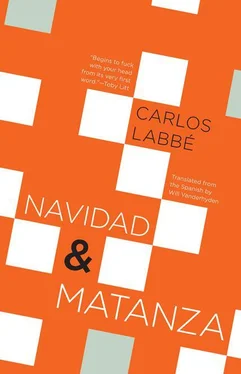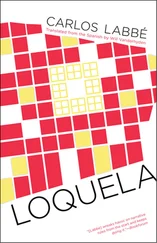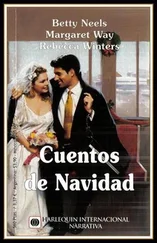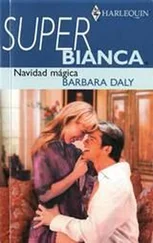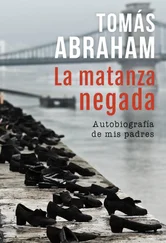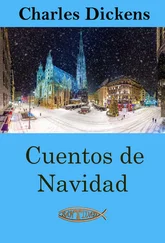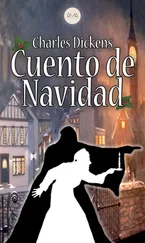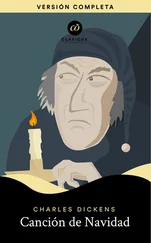By then they could touch the ocean floor. Hurrying to finish his last beer — it was already four in the morning — the man lowered his voice: Then I advised her to do something without realizing I was doing it — run away from her parents.
It was getting dark. They didn’t notice that a big wave was approaching and it broke over them; in the confusion, the girl hugged the man underwater, and he — instinctively, he assured me, like that excused it — also wrapped his arms around her. They came out onto the beach half-drowned, and moved furtively to the rocks, then walked to the dirt paths, and the interior fields of Cardenal Caro. First they went to the man’s house in Navidad, taking one suitcase and a large sum of money from Patrice Dounn’s room. Making sure no one saw them leave the town together, they met at a bus stop on the southbound highway, where they boarded the first bus that passed by.
They were happy, and scared because of what they’d seen on the beach in the moment of their flight: the foreigners were screaming insults at the sky, their eyes swollen in fury. A few had taken off their clothes and were running toward the town, hunched over and howling. Others bashed their heads against posts. Many ran over whomever was in front of them. The same scene was repeated everywhere: a man would pull a women’s hair and she’d defend herself by throwing sand in his eyes, then the man would throw a fistful at her, and she’d jump on him and scratch his back. The same thing, over and over.
The spectacle of a crowd, violent and blind — eyes open, but unseeing — didn’t appear to be part of the organization’s plan. The last thing he saw, said the man from the service station, were a dozen helicopters landing on the beach. Hundreds of security guards from the organization fell on the maniacal tourists; they carried syringes with a strange purple liquid. Juan Francisco and Elena Vivar were scratching at each other just like everyone else until they were tranquilized by the injection. It’s just a blood transfusion, Alicia told him on the bus, before falling asleep. And I think it was then that the man from the service station stopped speaking. He lit a cigarette and stared out the large window at the small plaza of Matanza. I’ve got to go to the bathroom, he muttered. The waitress sighed. Then she closed the notebook and said to me, though I didn’t anticipate her intervention: hadón is a drug whose effects are only mitigated by the blood of other people. I turned and looked at her attentively. Hate, fear, she began to pronounce with emphasis. Only perfect love dispels fear, she quoted. Before the man returned from the bathroom, I already knew that the waitress was Alicia Vivar.
TWO PHOTOGRAPHS.
Out of the stack she gave me before walking away as one possessed, two of the photographs would have distinct destinies yet also the same one. Before forgetting the sea and diving into the photos, I felt as if my emotions were abandoning me. Strange, in the same way people abandoned this beach at nightfall, heading toward their cabanas, to the hotel, to houses, with damp sand between their toes, with low blood pressure and a faraway longing, like the murmur of the sea. Like waves. Feelings as subjects, like people who come and go. I imagined myself stretching out on the sand, looking up, the photographs scattered on my towel, empty though not unfeeling. This last phrase I associate with two very important people, although with affects of distinct nature: in the novel-game I called them Sabado and Viernes. They both gave up, they both decided not to finish it, but there was no fear in them, just the opposite. Or is it the same thing? Desire, need — need twisted underground and turned into a tree whose branches shelter us from the sun — such that we, the remaining participants in the novel-game, longed to wake up beside them one morning, and have time and sufficient light to contemplate their unprotected faces up close. She (Sabado) would be laziness, he (Viernes), competence. I heard footsteps on the sand: my feelings moved off toward the police station. I tried to go back to the novel-game: Alicia would be happy that she was the owner of the towels and that it was all a misunderstanding. B was still free, they were meeting in the hallway, they looked each other in the eyes, searching for what they liked in each other’s faces. Is this to see? This is not why we were given eyes. I felt a desire to kiss someone, as if I’d not done so in a long time. Empty. I sat down on her towel to look at the photos. And what I saw were not images I could attribute to Boris Real, to the journalist, or to Domingo — not even to that two-faced character who comingles them — rather it was I, Carlos Labbé, who had them in my memory.
In the first one I’m with my grandmother and my brother in Matanza, in the area of the beach where tourists typically take keepsake photos. It was probably my father who took it. He was always taking photos at the time, but, as he got older, he lost that urgent need to keep a family album. There’s a narrow white border on the photo paper. Our attention, mine and my brother’s, has always been drawn to the clothes we were wearing: everything covered in stripes, leather sandals that we hated because we thought they looked like women’s sandals. And we were holding hands, with bright smiles. My grandmother looks so young, sixty-something, I guess. She’s smiling too, the same smile as always. I’m six and my brother is eight, yes, we’re holding hands. The sea is cool, my mother would’ve been watching from a distance, no longer moved because raising us had become habit for her. Could it be possible? I have a wide forehead, like an old man, my eyes already hidden. My brother was everything I wanted to be: his clothes, his voice, his bicycle (which really belonged to me because I won it in a drawing contest in Provida, but it was too big for me so they gave it to him), his women. It was a time of complete silence, of a white cat in my arms, of hundreds of Legos on the rug, of a deep longing for things of unfathomable dimensions, of absolute obedience to God because I was terrified of what my classmates might do to me if the opposing team made a goal. I played defense because I was bad at everything sports related. On the other hand, I was good at drawing. An inexplicable shiver passed through my entire body (I’ve almost never experienced a pleasure so intense) when we traveled to Rancagua or San Bernardo and I, from the left window in the car’s backseat, associated the colossal image of water towers bordering the highway with the smell of butter I discovered when I licked the open palm of my hand. This photo would end up, as you might imagine, on the wall at the back of my grandmother’s apartment, in the corner of a collage one of my aunts made with photos of all the grandkids from Easter or a birthday.
The second photo is a close-up of six, smiling adolescent faces, insecure but acting like they could handle any situation. At least that’s my expression. Owing to the lack of details — decorations, objects, even clothes — the photo could be from the present day. The date is “December, 1991.” We’re in the room I shared with my brother, in La Isla, the property we lived on near Rancagua. Undeniably we’re adolescents. In the photo are some friends from Nogales, a neighborhood of country houses, which today is an exclusive residential condominium. My brother — who was always in charge of where we went, why, and when — took the photo. El Coco, with a slender face and no pimples, smiled openly because someone must’ve said something funny. He was an insufferable snitch and at the same time cared for you. He was the first of us to swim down the fastest moving branch of the river. He was pretty and covered with hair; the women loved him. El Muno, blonde, small and clever, spoke little, and seemed not to care about people. He’d invented a language for himself, he smoked sticks that we found in the river, he drank alone, he read a lot, he’d spent a delightful evening — according to him — two summers ago with a female cousin from Australia. He was obsessed with masturbation. El Muno was a liar. He lived in a world he’d invented. He let Chep and I in, but only as his servants. I, like everyone, was attracted to his sister Quela, so I always wanted to go over to his house. Now anything I say about Yel, Chep, and Tomas — brothers separated from each other by one year, whom we called the Monkeys — will always be insufficient and inexpressive. In the photo, Yel has lots of pimples. Yel built clubhouses, put together shelves for his room, fixed radios. He was a monster. He covered us with loogies. He liked to hump his brother’s friends and we couldn’t do anything about it because he was tall and violent. But if you were alone with him he was nice, he asked you things an older brother would ask. He was responsible. Today — married of course, bald, a successful architect — he treats me with great kindness, but still calls me a horrible nickname that has to do with excrement. Chep was, and maybe still is, my best friend. We were about the same age and he liked to talk, drink coffee, and smoke a little bit. He’s blonde with a big face, like Felipe from Mafalda , with a gap between his front teeth so big he could spit through it. He’s extremely sentimental, he can’t regulate his emotions, every now and then he’d invent alternate personalities with outlandish names: Chichimau, Yoducaestan-de-casafala, The Ambilibiboy, Pato Yanez, Simioldi, Tribilin, The Pastam, and other beings I’ve forgotten. Once we were walking to his house at night and he said to me, trembling, that he couldn’t see anything, that he’d gone blind. Seriously. He always did things like that, and I’m gullible. I led him by the arm through the night, careful now there’s a pothole, to the right there’s lots of mud, Chep, what’s wrong, Chep. And then? We were entering his house. Coming in through the front door and he started to laugh — I think he might have kept on laughing his whole life — at my worried expression. He liked mowing the lawn at his house, watching television, making home videos with his video camera, changing the lyrics to famous songs, repeating jokes until they were worn out, and playing soccer. Also he was afraid of being rejected by women and of sex, above all. He was clumsy; he was hard working. He could vomit at will. On Sunday mornings when he woke up he’d run to his parent’s bedroom, pick up his baby sister, and carry her to his bed, so he could sleep with her smell. I miss him. I’ve spent too much time locked in this laboratory. In the photograph we’d just come back from the river, where we swam naked in December and January. Then, with mud up to our ears, we’d jump in the pool at my house to wash off. We made toast, spread butter on it, and walked back to the Monkeys’ house, two kilometers down a dirt path. On the way we talked about fun things and laughed at the wimps — whose only representative, most of the time, was I. Today the photograph is lost in my parent’s living room, in one of those awful cardboard albums that photo-processing labs give out. My sister loves looking through those albums when she’s bored.
Читать дальше
